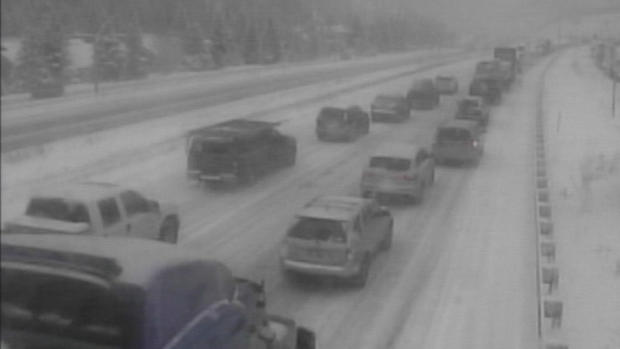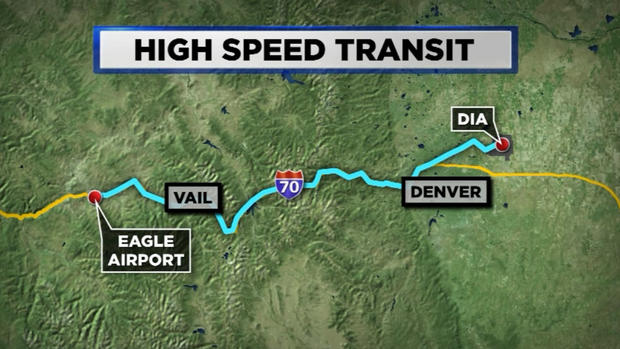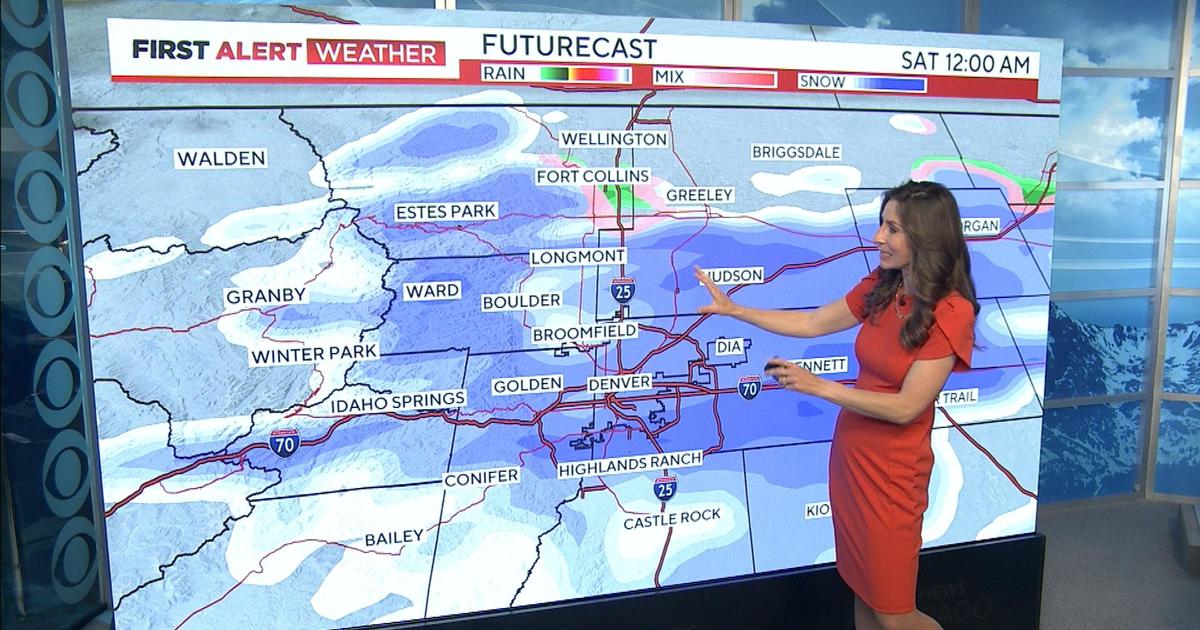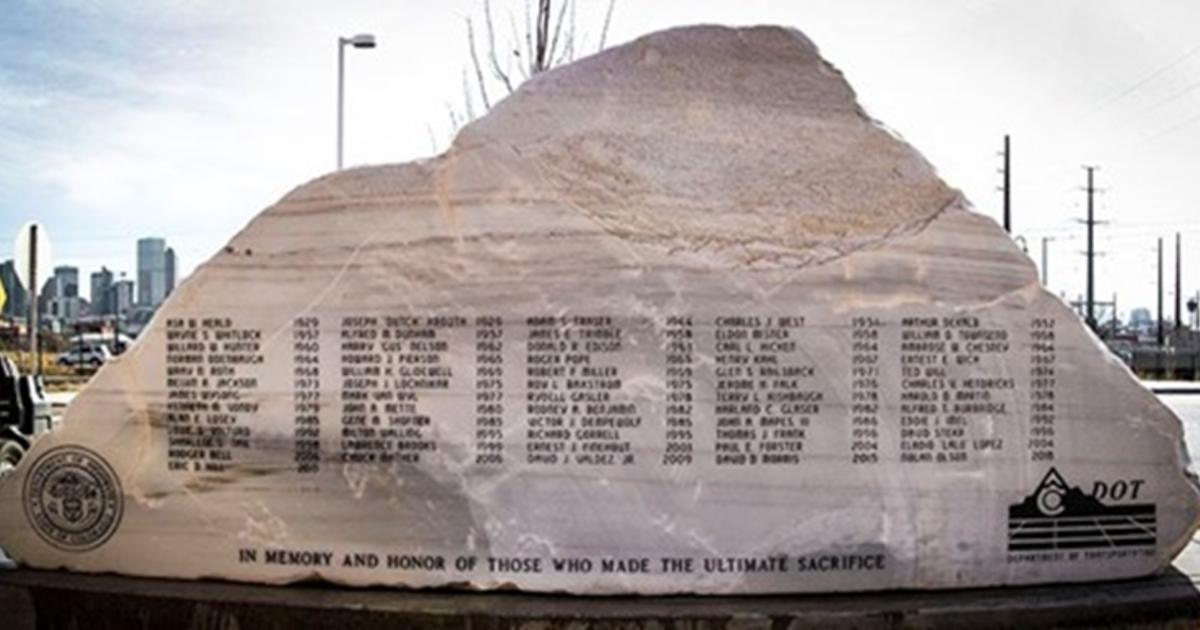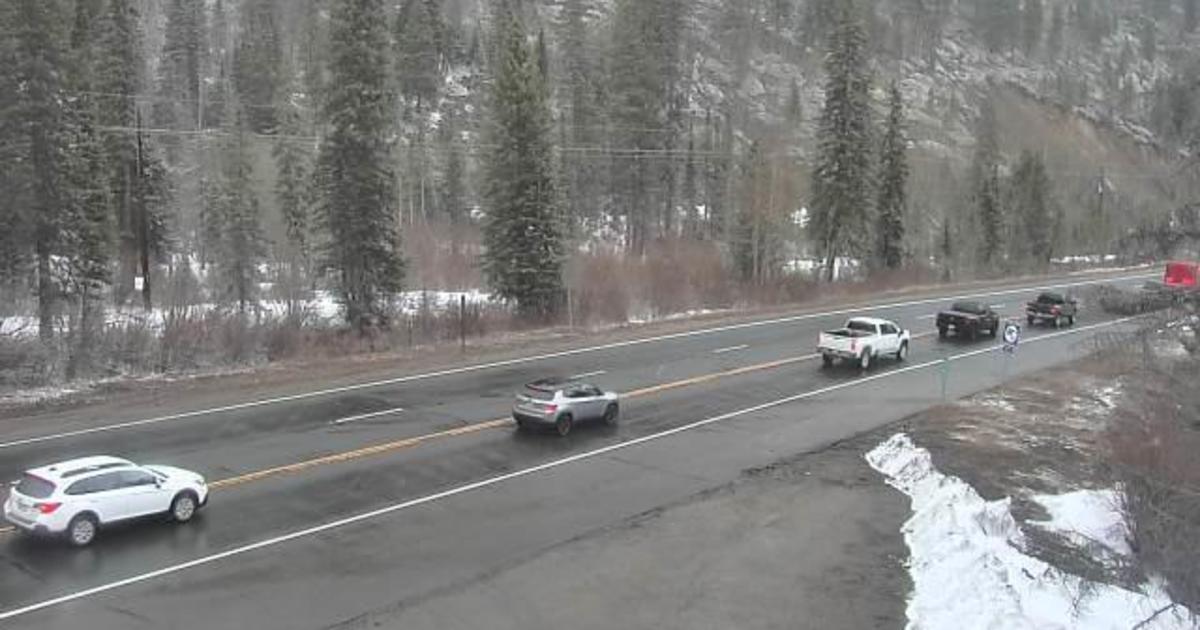I-70 Mountain Corridor Traffic Tops Future's Worst Commutes, Unless...
DENVER (CBS4) - America's highway infrastructure is not only in need of major improvements, but also complete reorganization as metro regions grow. And projections for the 11 worst commutes of the future include Denver's I-70 mountain traffic.
According to MarketWatch.com, one of the worst highway commutes that is expected to get even more unbearable in the future is the Interstate 70 corridor from Denver to Vail. The site projects that by 2035, I-70 congestion will be 62% higher than the current average.
That is, unless infrastructure projects break ground before then.
Colorado has been grappling with transportation solutions to this mountain traffic for decades, but consistently shoots down the most efficient idea -- a high-speed rail line. Costs are high, that is true, but so is the fact that traffic is horrific and only getting worse. At some point, there will be no other choice.
Some claim the technology for light rails has not yet peaked, and once more developments make it cheaper or better, then we will act. Yet Europe thrives on rail lines. I took a train from Denmark to the Netherlands, from one city to another, from inland Spain to the coast. Rail easily replaced the car.
However, the reason light rail works so well in Europe is population density. It's high. America is a vast land with sprawling populations, whereas Europe has a high concentration of people in a small land area.
There are a few places in the U.S. where rail works well: the northeast metro region including New York City to Boston, Washington D.C. and its surroundings, and San Francisco's well populated Bay Area.
But what about Denver? The Rocky Mountain Rail Authority, "a multi-jurisdictional government body comprised of 52 Colorado cities, towns, counties and transit authorities," believes high-speed rail is feasible in Colorado's I-70 and I-25 corridors.
In 2010, the group released findings of an 18-month feasibility study with the help of CDOT. They came up with a high-speed rail plan that could be implemented in four phases, giving Colorado a new means of transportation by 2021.
RELATED: High-Speed Rail To Mountains Proposed To Ease Traffic Congestion
A petition supporting the light rail from Denver to Vail was created on Change.org … nearly three years ago. It died with only 81 supporters, but it's clear that people feel strongly about such a solution.
The Colorado Department of Transportation Division of Transit & Rail completed an Advanced Guideway System feasibility study in 2014, which examined the facts of a high speed rail system for the I-70 Mountain Corridor.
They worked out every last planning detail, but concluded, "As of 2014, there are no local, state, or federal funds currently available for an AGS for the I-70 Mountain Corridor, and therefore the AGS is not financially feasible at this time."
Soon enough, with the world population reaching an unimaginable high of 9 billion, as well as an increase in Colorado's own population density, transportation changes will need to be made.
CDOT said in their report that strong local commitment is required to advance an AGS plan. Hopefully Colorado can devise an efficient plan for its growing population and ever-increasing tourist industry -- a plan that gets us to the slopes quicker!
CBS4 social media and website producer Heather Sadusky writes about trending topics on social media and across the Internet on her What's Trending Blog. Share a story idea with Heather by clicking here.
